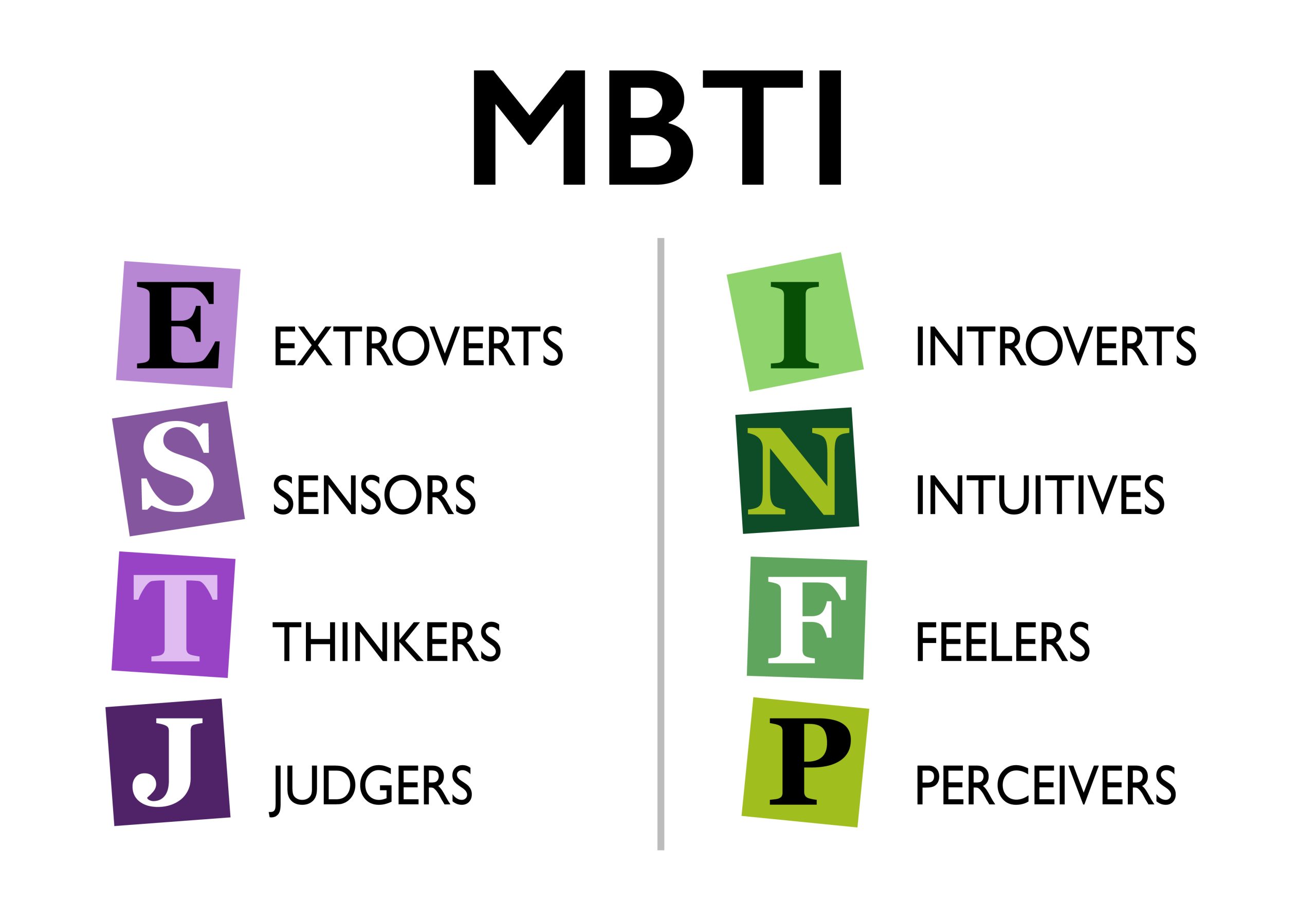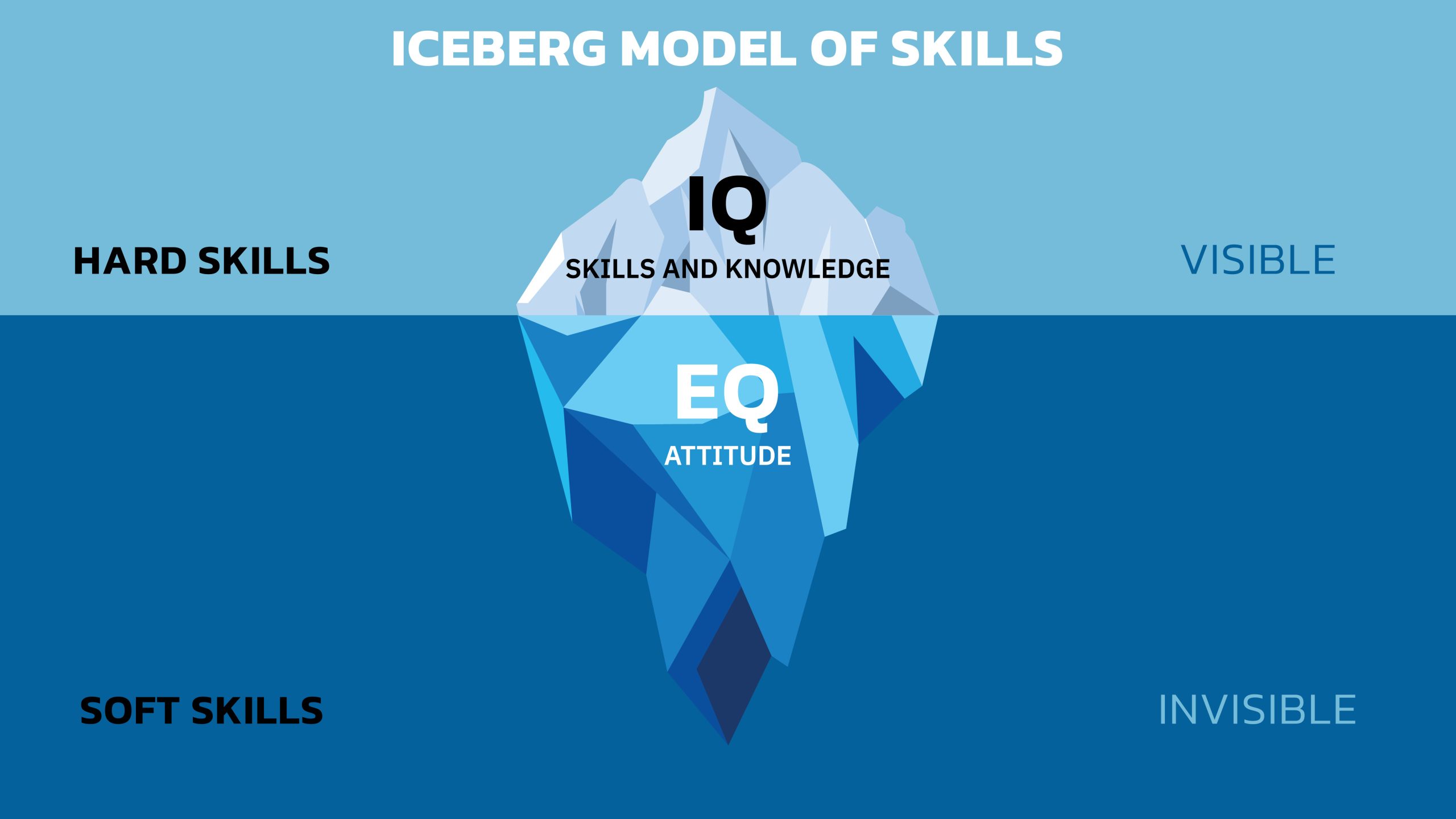Chapter 18: Personality, Skills and Interests
Chapter Learning Objectives
- 18.1 Identify key personality traits and work-related values that influence career satisfaction and success. (SLO 3)
- 18.2 Assess personal strengths, skills, and interests using self-evaluation tools and reflection to guide career exploration. (SLO 2, 3)
- 18.3 Utilize career assessment resources to match individual characteristics with potential career paths and educational opportunities. (SLO 2, 3)

Knowing yourself is the beginning of all wisdom. – Aristotle
After identifying values most important to you, the next part of the career development process is to reflect on personal preferences. By doing this, you will understand the work environment that you will naturally find a greater fit in. The career development process is all about you. You are a unique individual with a distinct combination of personality traits, skills, and interests, skills. Self-knowledge can help you in your career decision-making process to discover careers that are the best match for you.
Personality Type
Taking the time to ensure that your personality is compatible with your career choice is extremely important. If you do not invest the time now to figure out what makes you happy and keeps you motivated every day, you could be very unhappy in the future. Why is personality so important? Learning about your personality allows you to think about your emotions, behaviors, and ways of thinking on a day-to-day basis. For example, do you prefer to work alone, or do you prefer to work with others? Would you be content in a career that requires you to be extremely organized and have a set schedule? Or are you the type of person that likes to have an open, flexible schedule that allows you to be spontaneous? This information will assist you in deciding which career(s) match your personality preferences.
To review personality preferences, one of the most common tools used to understand personality preferences is the Myers-Briggs Type Indicator® (MBTI). Some organizations (such as law enforcement) use it to find out more about the personalities of their potential employees, some universities use the MBTI to learn more about the personalities of potential graduate students considering psychology, counseling, and social work fields, and it is commonly used in relationship therapy to help individuals understand each other and their behaviors better.
Video: Introduction to the MBTI:
Watch the following video to get an introduction to the MBTI:
Personality Theory: The 4 Facets
- Extroversion-Introversion (EI): How you get your energy and where you prefer to focus your attention
- Sensing-Intuition (SN): How you take in information about the world around you
- Thinking-Feeling (TF): How you like to make decisions
- Judging-Perceiving (JP): How you prefer to organize your life

Work Styles
Skills, in addition to personality, skills are also important to consider in the career development process. If you lived and worked in colonial times in the United States, what skills would you need to be gainfully employed? What kind of person would your employer want you to be? And how different would your skills and aptitudes be then, compared to today?
Many industries that developed during the 1600s–1700s, such as health care, publishing, manufacturing, construction, finance, and farming, are still with us today. And the professional abilities, aptitudes, and values required in those industries then are the same today.
For example, in the health care field then, just like today, employers looked for professionals with scientific insight, active listening skills, a service orientated focus, oral comprehension abilities, and teamwork skills. In the financial field then, just like today, employers looked for economics and accounting skills, mathematical reasoning skills, clerical and administrative skills, and deductive reasoning. Why is it that with the passage of time and all the changes in the work world, some skills remain unchanged (or little changed)?
The answer might lie in the fact there are two main types of skills that employers look for: hard skills and soft skills.
Find Your work Style
There are many ways to find your professionals skills, but knowing what skills are most important for getting your dream profession can be hard. O*NET OnLine provides an online tool that helps you to review your personal characteristics and how they can affect how well one performs a job.
Video: O*NET
Watch this O*NET Program Overview video to learn how the Occupational Information Network uses data to help you, other job seekers, and employers discover the right skills for the future:
The O*NET Interest Profiler can help you find out “what your interest are and how they relate to the world of work” (O*NET Interest Profiler, nd). Try it out today!
Hard Skills & Soft Skills
Hard skills are concrete or objective abilities that you learn and perhaps have mastered. They are skills you can easily quantify, like using a computer, speaking a foreign language, or operating a machine. You might earn a certificate, a college degree, or other credentials that attest to your hard-skill competencies. Obviously, because of changes in technology, the hard skills required by industries today are vastly different from those required centuries ago.
Soft skills, on the other hand, are subjective skills. Such skills might pertain to the way you relate to people, or the way you think, or the ways in which you behave—for example, listening attentively, working well in groups, and speaking clearly. Soft skills are sometimes also called “transferable skills” because you can easily transfer them from job to job or profession to profession without much training.

What Employers Want in an Employee
Employers want individuals who have the necessary hard and soft skills to do the job well and adapt to changes in the workplace. Soft skills may be especially in demand today because employers are generally equipped to train new employees in a hard skill—by training them to use new computer software, for instance—but it’s much more difficult to teach an employee a soft skill such as developing rapport with coworkers or knowing how to manage conflict. An employer might rather hire an inexperienced worker who can pay close attention to details than an experienced worker who might cause problems on a work team.
In this section, you will look at ways of identifying and building hard and soft skills that will be necessary for your career path. You will also learn how to use your time and resources wisely to acquire critical skills for your career goals.
Transferable Skills for Any Career Path
Transferable (soft) skills may be used in multiple professions. They include, but are by no means limited to, skills listed below:
- Dependable and punctual (showing up on time, ready to work, not being a liability)
- Self-motivated
- Enthusiastic
- Committed
- Willing to learn (lifelong learner)
- Able to accept constructive criticism
- A good problem solver
- Strong in customer service skills
- Adaptable (willing to change and take on new challenges)
- A team player
- Positive attitude
- Strong communication skills
- Good in essential work skills (following instructions, possessing critical thinking skills, knowing limits)
- Ethical Safety conscious
- Honest
- Strong in time management
Career Readiness
The National Association of Colleges and Employers (NACE) has identified the competencies that prepare college graduates for a successful transition into the workplace. These are the skills that employers repeatedly say they are looking for in new hire candidates:
- Critical Thinking/Problem Solving: Exercise sound reasoning to analyze issues, make decisions, and overcome problems. The individual is able to obtain, interpret, and use knowledge, facts, and data in this process, and may demonstrate originality and inventiveness.
- Oral/Written Communications: Articulate thoughts and ideas clearly and effectively in written and oral forms to persons inside and outside of the organization. The individual has public speaking skills; is able to express ideas to others; and can write/edit memos, letters, and complex technical reports clearly and effectively.
- Teamwork/Collaboration: Build collaborative relationships with colleagues and customers representing diverse cultures, races, ages, genders, religions, lifestyles, and viewpoints. The individual is able to work within a team structure and can negotiate and manage conflict.
- Digital Technology: Leverage existing digital technologies ethically and efficiently to solve problems, complete tasks, and accomplish goals. The individual demonstrates effective adaptability to new and emerging technologies.
- Leadership: Leverage the strengths of others to achieve common goals and use interpersonal skills to coach and develop others. The individual is able to assess and manage his/her emotions and those of others; use empathetic skills to guide and motivate; and organize, prioritize, and delegate work.
- Professionalism/Work Ethic: Demonstrate personal accountability and effective work habits, e.g., punctuality, working productively with others, and time workload management, and understand the impact of non-verbal communication on professional work image. The individual demonstrates integrity and ethical behavior, acts responsibly with the interests of the larger community in mind, and is able to learn from his/her mistakes.
- Career Management: Identify and articulate one’s skills, strengths, knowledge, and experiences relevant to the position desired and career goals and identify areas necessary for professional growth. The individual is able to navigate and explore job options, understands and can take the steps necessary to pursue opportunities, and understands how to self-advocate for opportunities in the workplace.
- Global/Intercultural Fluency: Value, respect, and learn from diverse cultures, races, ages, genders, sexual orientations, and religions. The individual demonstrates openness, inclusiveness, sensitivity, and the ability to interact respectfully with all people and understand individuals’ differences.
Do these career readiness skills look familiar? Of course! They are another way to describe the soft and transferable skills which can be more difficult to define than hard skills, but they are often more important to employers. Imagine that you are the hiring authority at your company. What would you look for in a new hire?
These skills are transferable because they are positive attributes that are invaluable in practically any kind of work. They also do not require much training from an employer—you have them already and take them with you wherever you go. Soft skills are a big part of your “total me” package. So, identify the soft skills that show you off the best, and identify the ones that prospective employers are looking for. By comparing both sets, you can more directly gear your job search to your strongest professional qualities.
10 Top Skills You Need to Get a Job When You Graduate
The following according box summarizes the ten top skills that the Target corporation believes will get you a job when you graduate.
Exercises
Occupational Options by Type
Additionally, you can browse different careers on O*NET by interests. Interests are broken into six categories:
- Realistic-practical, hands-on problems and solutions
- Investigative ideas, thinking, and figuring things out
- Artistic-creating designing, and making your own rules
- Social-helping people, teaching, and talking
- Enterprising-leading, making decisions, and business
- Conventional-data, detail, and regular routines
| Ideal Environment | Characteristics | Sample Occupations |
|---|---|---|
| Realistic |
|
|
| Investigative |
|
|
| Artistic |
|
|
| Social |
|
|
| Enterprising |
|
|
| Conventional |
|
|
The data in O*NET can help you get a deeper understanding of your occupation. For each occupation, O*NET lists the type of work, the work environment, the skills and education required, and the job outlook for that occupation.
Your Next Steps
It may seem odd to be thinking about life after school, especially if you are just getting started. But you will soon be making decisions about your future, and regardless of the direction you may choose there is a lot you can do while still in college. You will need to focus your studies by choosing a major. You should find opportunities to explore the careers that interest you. You can ensure that you are building the right kind of experience on which to base a successful career. These steps will make your dreams come to life and make them achievable.
Start by developing a relationship with your college advisors for specific guidance on the academic requirements for your career goals. Will you need to prepare to transfer to a university? If you are in a workforce development program, start building relationships with your instructors as many still work in your field of interest and can give you great tips on how to get started.
It is never too early to start thinking of your plans after college! All too often students engage these counselors only near the end of their college days, when the pressure is just on getting a job—any job—after having completed their certificate or degree. But these counselors can be of great help in matching your interests to a career and in ensuring you are gathering the right kind of experience to put you at the top of the recruiting heap.
Keep in mind that deciding on and pursuing a career is an ongoing process. The more you learn about yourself and the career options that best suit you, the more you will need to fine-tune your career plan. Don’t be afraid to consider new ideas, but don’t make changes without careful consideration. Career planning is exciting: learning about yourself and about career opportunities, and considering the factors that can affect your decision, should be a core part of your thoughts while in college.
Just Get Involved
Even as a college student, there are actions that you can take now to help you create the experiences and build the skills that employers want. What seems like an unrelated part-time job or fun extracurricular activity can help you develop valuable skills, create a network, and connect you with job openings that may be a good fit for your skills.
- Get involved in part-time work related to your interests, skills and future goals
- Get involved in extracurricular activities on campus or in your community
- Get involved with the employment and career services offered at your school
Conclusion
The right career for you depends on your interests, your personality, and your skills. Not every job is right for every person and that’s ok! Start planning now to make the most of your degree by taking the classes that help you build the skills future employers are looking for!
Learning about your personality helps you to think about your emotions, behaviors, and ways of thinking on a day-to-day basis. An awareness of these things will help you to find a career that compliments your personality. Employers look for both hard and soft (transferable) skills in future employees; however transferable skills may be in more demand because they help people adapt to a variety of different jobs and professions without much training. Defining your occupational type may confirm career choices you have already made and open entirely new options for you. Connect with a college counselor early in your career development process to help you match your skills, personality and interests with potential jobs and eventually a career that best suits you. Career planning is an ongoing process involving knowing yourself, knowing about career options, and understanding the context in which your decisions will be made.
How to cite this chapter:
Allison, D. (n.d.). Chapter 18: Personality, Skills and Interests. In Pouska, B. (Ed.), Business Professionalism. New Mexico Open Educational Resources Consortium Pressbooks. https://nmoer.pressbooks.pub/businessprofessionalism/
Licenses and Attributions
CC Licensed Content — Shared Previously
Bruce, L. (n.d.). Professional skill building. Lumen Learning. (Licensed under CC BY 4.0.)
Camosun College. (n.d.). Employability skills competency. BCcampus OpenEd. (Licensed under CC BY 4.0.)
Hibbets, J. (2014, April). 7 skills to land your open source dream job. Opensource.com. (Licensed under CC BY 4.0.)
Priester, T. C. (Ed.). (n.d.). Foundations of college success: Words of wisdom. Open SUNY Textbooks. (Licensed under CC BY-NC-SA 4.0.)
Wikimedia Commons. (n.d.). What’s your personality type? (Licensed under CC BY 4.0.)
All Rights Reserved Content
Learn English with Rebecca. (n.d.). How to find a new job — Transferable job skills [Video]. YouTube. (Licensed under Standard YouTube License – All Rights Reserved.)
Monash University. (n.d.). Tips to improve your career from Monash graduates [Video]. YouTube. (Licensed under Standard YouTube License – All Rights Reserved.)
NACE. (n.d.). Career readiness defined. (All Rights Reserved.)
O*NET OnLine. (n.d.). Work styles. (All Rights Reserved.)
Practical Psychology. (n.d.). Myers-Briggs (MBTI) explained — Personality quiz [Video]. YouTube. (Licensed under Standard YouTube License – All Rights Reserved.)
TARGETjobs. (n.d.). 10 top skills that will get you a job when you graduate [Video]. YouTube. (Licensed under Standard YouTube License – All Rights Reserved.)
Original Chapter Source
Original chapter source: Adapted from Career Planning and Personal Exploration by Dawn Allison.

